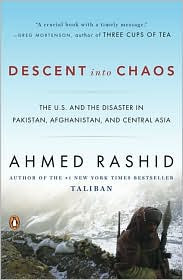The current featured contributor at
Writers Read: Miles Corwin, author of
Kind of Blue.

His entry begins:
I just finished T. Jefferson Parker’s Iron River.
I enjoyed it for a number of reasons. A lot of mysteries are clipped and laconic, more like movie treatments than novels. Iron River was different. The descriptions of the desert landscapes were very evocative, and the characters were well drawn and fully formed. The subplot was compelling and convincing. And while many mystery writers are content to adhere to the basic outlines of a murder investigation, Parker grappled with an important societal issue – you can read the book to find out what it is – without being didactic or slowing down the plot.
I like to alternate crime fiction with nonfiction. After reading Iron River, I read...[read on]
Among
the early praise for Kind of Blue:
"Corwin...clearly knows the technical stuff. His procedural details are spot-on, but he also knows how to generate adrenaline-producing action, and he gets in to the very heart and soul of his multifaceted protagonist. This fine first novel marks the arrival of a strong new voice in hard-boiled crime fiction."
—Booklist (starred review)
"Hard-boiled Jewish cops are few and far between, and Corwin's (Ash) Levine is a scrappy pit bull of a detective who doesn't let go until the guilty are found... Years of experience as a Los Angeles Times reporter give Corwin the inside track on the seamy side of the city, and his depiction of the life of a police detective is as real as it gets. Readers of Michael Connelly will rejoice."
—Library Journal
"Miles Corwin wrote two brilliant nonfiction explorations of Los Angeles Police Department homicide detectives in The Killing Season and Homicide Special. Now,  Mr. Corwin infuses his intimate knowledge of cops and murder in his first novel, Kind of Blue, the story of LAPD Robbery-Homicide Detective Ash Levine, a one-time Israeli paratrooper at war with his fellow detectives, his department, and his own unrelenting guilt for having lost a witness he failed to protect. Every bit as moving, funny, complex, and exciting as the works of Michael Connelly and Joseph Wambaugh, Kind of Blue launches Miles Corwin to the front rank of crime novelists working LA's meanest streets."
Mr. Corwin infuses his intimate knowledge of cops and murder in his first novel, Kind of Blue, the story of LAPD Robbery-Homicide Detective Ash Levine, a one-time Israeli paratrooper at war with his fellow detectives, his department, and his own unrelenting guilt for having lost a witness he failed to protect. Every bit as moving, funny, complex, and exciting as the works of Michael Connelly and Joseph Wambaugh, Kind of Blue launches Miles Corwin to the front rank of crime novelists working LA's meanest streets."
—Robert Crais, New York Times bestselling author
"Kind of Blue is my kind of book and I think Miles Corwin is a novelist to watch. This book has character and texture, action and reflection. It's got it all and I can't wait for more!"
—Michael Connelly, New York Times bestselling author
Miles Corwin, a former crime reporter for the
Los Angeles Times, is the author of three nonfiction books:
The Killing Season, a national bestseller;
And Still We Rise, the winner of the PEN West award for nonfiction and a
Los Angeles Times Best Book of the Year; and
Homicide Special, a
Los Angeles Times bestseller.
Kind of Blue, Corwin's first novel, debuts in November.
Visit
Miles Corwin's website.
Writers Read: Miles Corwin.
--Marshal Zeringue













































